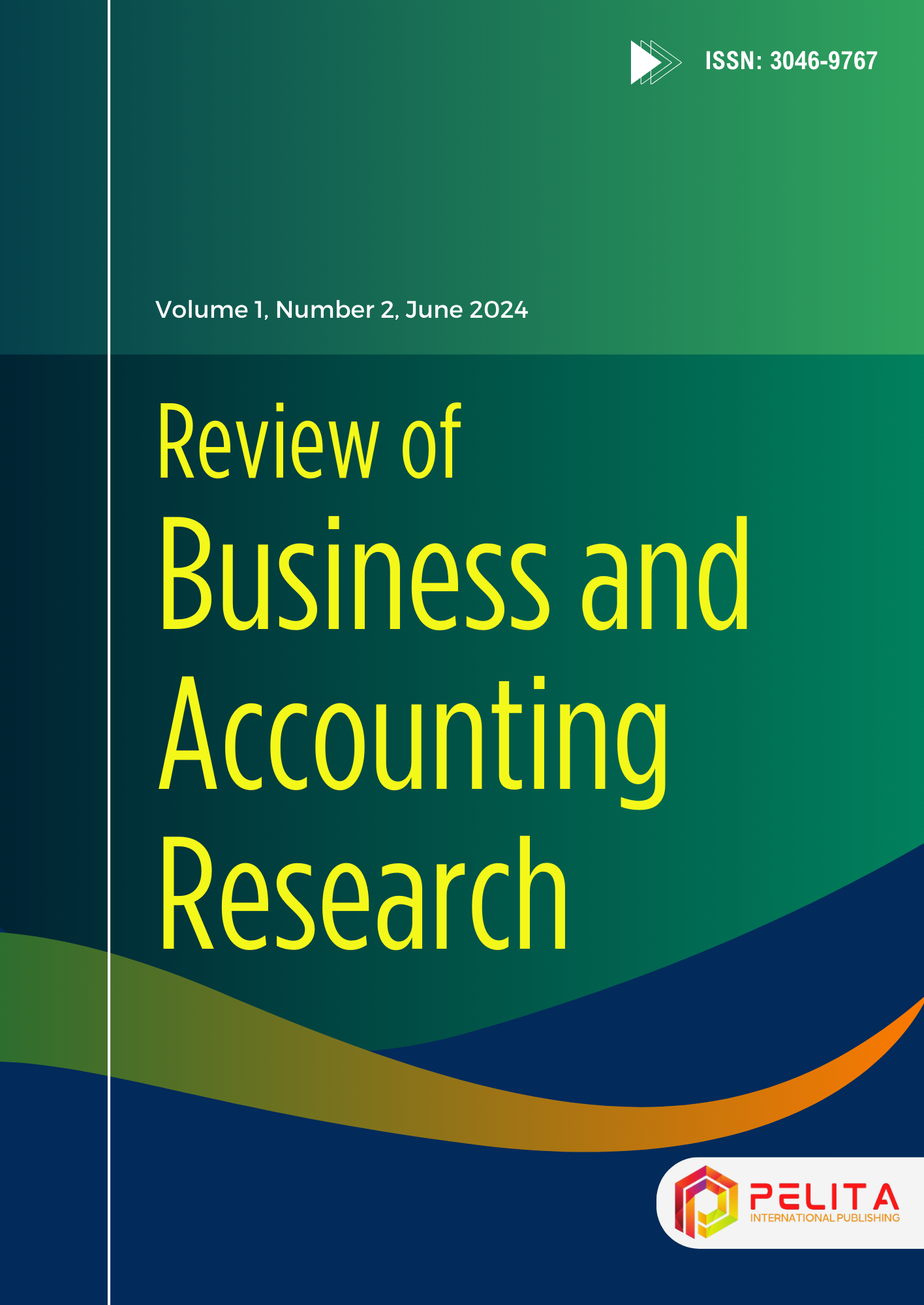How is the implementation of Islamic accounting system for profit-sharing investment in Islamic banks?
Main Article Content
Mai Simahatie
Khalizazia
This study aims to examine the profit-sharing system in the Mudharabah savings program at Islamic banks, specifically focusing on Bank Syariah Indonesia (BSI), Bireuen Branch. The research utilizes both primary data, collected through interviews with key informants, and secondary data from books, journals, and scholarly publications. The study was conducted over a three-month period. A qualitative research approach was employed, involving observation, interviews, and documentation. Data analysis techniques included data collection, data reduction, data presentation, and conclusion drawing. To ensure validity, the study applied credibility, transferability, dependability, and confirmability tests. The findings indicate that the profit-sharing mechanism in the Mudharabah savings program at BSI follows a revenue-sharing calculation based on gross profit, without accounting for the bank's operational expenses. In the event of a loss, the customer bears the financial burden. Furthermore, the implementation of profit-sharing accounting at BSI adheres to Sharia principles, and the accounting procedures for each savings product align with the Fatwa issued by the Dewan Syariah Islam (National Sharia Council). These results contribute to a better understanding of the application of Islamic banking principles in profit-sharing arrangements.
Astika, S., & Suarni, A. (2018). Analisis penerapan akuntansi syariah berdasarkan PSAK 102 pada pembiayaan murabahah di PT. Bank BNI syariah cabang Makassar. Jurnal Ar-Ribh, 1(1).
Ayuningtyas, G. (2016). Tinjauan Yuridis Eksekusi Hak Tanggungan Melalui Penjualan di Bawah Tangan Sebagai Penyelesaian Kredit Macet di PD. BPR Bank Klaten (Doctoral dissertation, UNS (Sebelas Maret University).
Fadhila, N. (2015). Analisis pembiayaan mudharabah dan murabahah terhadap laba bank syariah mandiri. Jurnal Riset Akuntansi dan Bisnis, 15(1). https://doi.org/10.30596/jrab.v15i1.427
Hafira, D. P., Rahmani, N. A. B., & Syafina, L. (2023). Pengaruh Modal Kerja Dan Transaksi Online (E-Commerce), Dan Labelisasi Halal Terhadap Pendapatan UMKM Muslim Di Kota Medan Dalam Konsep Mashlahah. Jurnal Manajemen Akuntansi (JUMSI), 3(3), 1699-1716.
Moleong, L. J. (2019). Metodologi penelitian kualitatif. PT Remaja Rosdakarya Bandung.
Pattiasina, V. (2017). Analisis pengaruh kualitas auditor, ukuran perusahaan, jumlah komite audit, kompleksitas operasi perusahaan terhadap audit delay dan opini audit yang diinterveing oleh audit lag. Future: Jurnal Manajemen dan Akuntansi, 5(1), 85-98.
Rampen, S. J., Suoth, H., & Pandowo, A. (2022). Pengaruh Kualitas Pelayanan Dan Persepsi Harga Terhadap Kepuasan Pelanggan Di Alfamart Kakas Minahasa. Jurnal Manajemen dan Bisnis, 7(2).
Sumar’in, S. (2012). Konsep Kelembagaan Bank Syariah. Yogyakarta: Graha Ilmu.
Timami, M. F. (2013). Pengaruh dan manfaat bagi hasil terhadap jumlah simpanan deposito mudharabah bank syariah mandiri di Indonesia. Jurnal pendidikan ekonomi (JUPE), 1(3).
Yuliana, R. (2013). Muhasabah Bank Syariah Dalam Penerapan Prinsip Bagi Hasil. Imanensi: Jurnal Ekonomi, Manajemen, Dan Akuntansi Islam, 1(1), 51-61.
%20(3).png?updatedAt=1716868623033)











